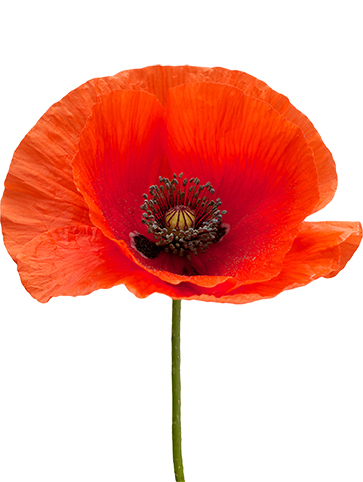 This year’s season of Remembrance takes place against a backdrop of unfamiliar forces at work in our communities and world.
This year’s season of Remembrance takes place against a backdrop of unfamiliar forces at work in our communities and world.
To many locally, these are threatening forces but to others they seem to offer the hope of fulfilment. Some are claiming their mission is to unite behind things held in common, but others see their use of our national flags as divisive and a portent of worse.
There has, wherever one stands, been a tarnishing of our flags, a sense that they have not been respected as they should, and that the deep meaning behind them has been obscured.
This will be sharply apparent at Remembrance if we look below the surface, something our churches must encourage. We must look at what lies behind our flags and at what it was that we, united with so many, have defended in two world wars and since. Remembrance offers the opportunity to recapture some of that seemingly lost essence, for every single person in our nation, not just some.
Remembrance is a national occasion when we come together in communities and gather round war memorials or stand in two-minutes silence in our workplaces or homes. It is an occasion without borders when we recognise that many who made the same sacrifice that we are commemorating, remembering together, were from other countries across the Commonwealth and the world. Now, after due time, we even remember the fallen of those we fought, which is part of recognising the futility of war. Remembrance is also a generous and costly occasion when in remembering, we are also moving beyond old enmities to choose to live in peace. That is not just to do with victory, it is to do with how we choose to ‘win the peace’ in Franklin D Roosevelt’s memorable phrase. We are constantly, daily, winning the peace. War always looks the same: death, violence and despoilation. Peace we must make afresh in each generation.
We are remembering not just those in the forces who have given their lives for their country since 1914 but also the emergency services and civilians who have been caught up in war or harmed by acts of terror - a lengthy roll-call still grievously being lengthened. This year will find conflicts and incidents that bring a sense of horror very present to us, as we call to mind death and suffering caused by the actions of humans on other humans in Gaza, Ukraine, Syria, Yemen and closer to home, in Manchester or London’s Finsbury Park. This brings home the importance of this season of Remembrance as a time of stilling ourselves, turning away from thoughts of warfare towards thoughts of peace-making. The opportunity presented in Remembrance is the chance to place ourselves with the peacemakers, those Jesus called ‘Blessed’ in the Sermon on the Mount. This is not taking sides as in battle: it is placing ourselves, if we need a vivid symbol, ‘on the side of the angels’.
This magnificent phrase is within the grasp of everyone. Needing no deep theological understanding, it removes us from the polarisation and poses a deeper, moral question. It is timely for this language to be recaptured and widely redeployed as we need vivid language to counter the glib solecisms of hatred.
The shocking truth is that in our deeply polarised state, there will be those on both sides who will see themselves as ‘on the side of the angels’. Rather than creating commonality and connection between them, though, this serves to highlight the gap between them, because they appear to fear different things: one side is afraid of the other side’s motives and course of action, the other side is afraid of people ‘not like them,’ full stop.
Recognising these fears does not deny the underlying concerns or address their legitimacy, but embracing and recapturing this alternative, deeper narrative might allow people to move forward, to hear in stillness the message at Remembrance that perfect love casts out all fear and to recognise that the symbols integral to the flags are those of perfect love. All who stand under the banner of Christ’s perfect love on his cross, who see that message of love radiate from St George’s, St Andrew and St Patrick’s crosses on the Union flag see a deeper truth than those who merely see a marker of territory and signifier of tribe.
The tribe of God is the human race, the flag of God is the banner of love. Under that flag will come the healing of the one tribe: the multitude of heaven that gathers people from every nation.
It is fitting to use that image to inspire our remembrance, coming as it does before Advent when we look ahead not just to the coming of Christ among us in vulnerability as a baby, to show us God identifying with the sufferings that we think no one sees or gets, but also that when he comes again it will be to unite all those who travel under the banner of love and to separate them from those who do not.
Let us not pre-empt that glorious day of his coming again in a mere shadow of choosing who is ‘in’ and who is ‘out’, of our own making.
Arun Kataria
Director of Communications